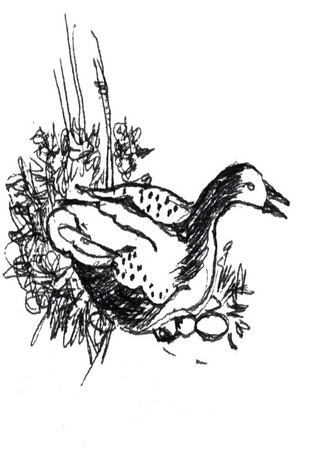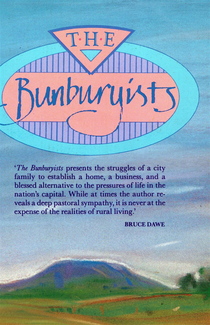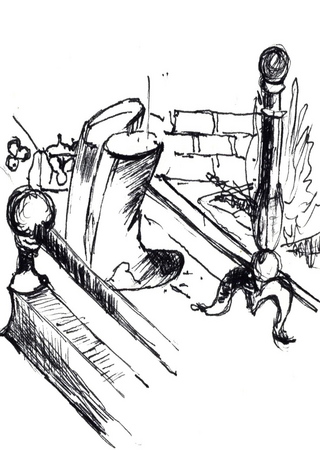|
The Bunburyists
 The Bunburyists by Anthony Hill, illustrated by Peggy Earl. Penguin Books, Melbourne, 1985, 216 pages, paperback. Out of print. The Bunburyists by Anthony Hill, illustrated by Peggy Earl. Penguin Books, Melbourne, 1985, 216 pages, paperback. Out of print.
 Anthony Hill's first book is largely autobiographical. It is the story of our family escaping the rat-race of journalism and politics in Canberra, and moving to a country village to open an antique shop. It is a book about the closeness of rural life, the characters to be found there, the cycle of the seasons, the healing power of friendship, and the renewal of the bonds between us. Anthony Hill's first book is largely autobiographical. It is the story of our family escaping the rat-race of journalism and politics in Canberra, and moving to a country village to open an antique shop. It is a book about the closeness of rural life, the characters to be found there, the cycle of the seasons, the healing power of friendship, and the renewal of the bonds between us.
What the critics said about The Bunburyists.
While at times the author reveals a deep pastoral sympathy, it is never at the expense of the realities of rural living (Bruce Dawe).
A beautiful book, written with ease and wit, that tells true family tales of dropping out (The National Times).
... deserve(s) to become a minor classic of (its) time (Clement Semmler).
Why did you write the book?
It is based on a series of articles I wrote for The National Times newspaper in 1983 about our experiences in the country ... escaping Canberra, building our house, running the shop, raising our animals, living through drought. The public response was so encouraging, I expanded them into book form.
Why The Bunburyists? What does the title mean?
I called my village 'Bunbury' after the character in Oscar Wilde's play The Importance of Being Earnest. Whenever Algernon wants to escape to the country, it is to visit his imaginary invalid friend, Mr Bunbury.
One has a right to Bunbury anywhere one chooses. Every serious Bunburyist knows that.
Does The Bunburyists have any stories?
 The narrative is divided by two sections of short stories which deal with some of the less pleasant aspects of village life. The narrative is divided by two sections of short stories which deal with some of the less pleasant aspects of village life.
People are just as kind, just as thoughtful, as gossip-ridden and as foolish, as brave, as absurd and as cruel in the city as they are in the bush. The great difference is that you know them all.
There are ten stories, which range in theme from a silly quarrel over a piece of bad pumpkin, to a road worker who gives up his job, a clergyman's family who become the victims of town gossip, a lonely old lady wheeling her dog in a child's pram.
Mr Hill's stories are short, often amusing and vivid (Elizabeth Jolley).
But the main focus is on our family – re-establishing our lives and learning to run a business. We returned to Canberra a very different family to the one that escaped.
There is the richness of experience shared together. The self-knowledge that comes from daily contact with nature ... and the necessity to earn your living from your own labours. There is the strength of knowing we are not tied to any treadmill. We can always escape again if we need to. We can survive.
The Hearth by Peggy Earl from The Bunburyists
|